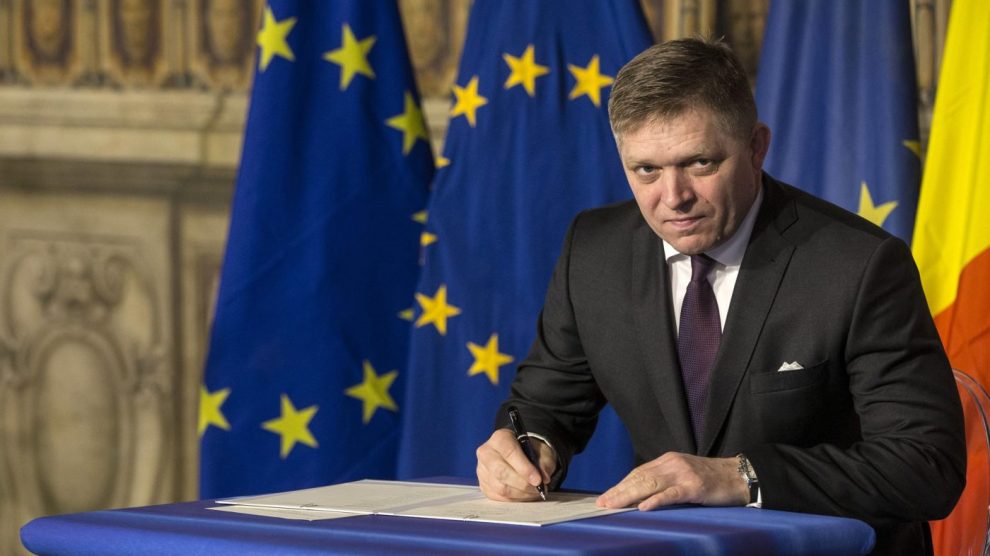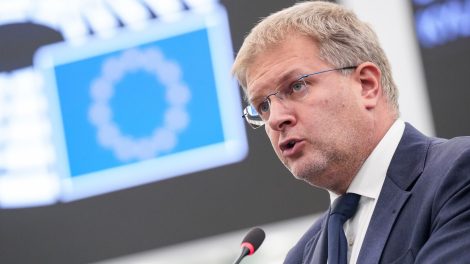Europe’s left is not digging Robert Fico. The left-leaning, populist leader of Smer came on top of Slovakia’s elections this weekend with a 23% share of votes – earning him a strong chance to form a coalition government and become Prime Minister for the second time. That prospect is proving somewhat disturbing within the European Union’s leftist parties, which are taking issue with Mr Fico’s positions on Russia, Ukraine, NATO and migration.
- In brief, the prospective PM is strongly opposed to providing military aid to Ukraine (at a critical juncture when the United States has temporarily paused its weapons shipments and public fatigue mounts). He also campaigned strongly against immigrants, promising a crackdown on borders.
- Those positions are comparable to Hungary’s Viktor Orban – which was among the first leaders to congratulate him. “Always good to work with a patriot,” he posted to X, hinting at a future cooperation.
That includes the Italian left. Upon learning of the result, the head of the Democratic Party (PD)’s delegation to the European Parliament, Brando Benifei, joined many of his fellow MEPs in calling for “the expulsion of Smer” from the European Socialists and Democrats group if he “goes into government with the right” and “implements a disengagement with Ukraine and the Atlantic Alliance.”
- “There is no room for those who are subservient to [Russian President Vladimir] Putin and Kremlin propaganda in the political community of European Socialists,” added his second-in-command Pina Picierno, while influential PD senator Filippo Sensi simply stated that Mr Fico is “incompatible with EU values.”
Sitting down with Alessandro Alfieri. “We have long called for [Mr] Fico’s ouster from the Group of European Socialists and Democrats,” said PD’s group leader in the Senate Foreign Affairs and Defence Committee to our sister website. “The outcome of these elections and the way the campaign was conducted confirm us in this conviction,” he added, noting that the prospective Slovak PM “has long been carrying out battles that are diametrically opposed to the values that the Socialist Group represents – so I think his exit from the group is physiological.”
- Mr Alfieri does not think that his becoming PM would bring Slovakia to question its NATO membership in NATO. Still, he acknowledges the spread of “strongly anti-European sentiment” and worries about Bratislava’s convergence with the other Visegrad Group countries (which includes the Czech Republic and Poland, itself heading to the polls, as well as Hungary and Slovakia).
Counter-wobbling on NATO. PD members rejecting Mr Fico’s brand of populist leftism so forcefully is a shift compared to the ambiguous softening of its positions on some Ukraine-related issues, including the use of EU funds to boost the bloc’s ammo production and following up on Italy’s commitment to reach NATO-wide defence spending targets.
- Those diversions from PD’s strong track record of Atlanticism and support to Ukraine came after PD’s new leader, Elly Schlein, took the post in February and began converging with the NATO-sceptic, populist Five Star Movement on some policy areas.
- Still, PD’s overall reaction to Mr Fico goes to show that the party’s Atlanticist credentials have not been shelved quite yet.





